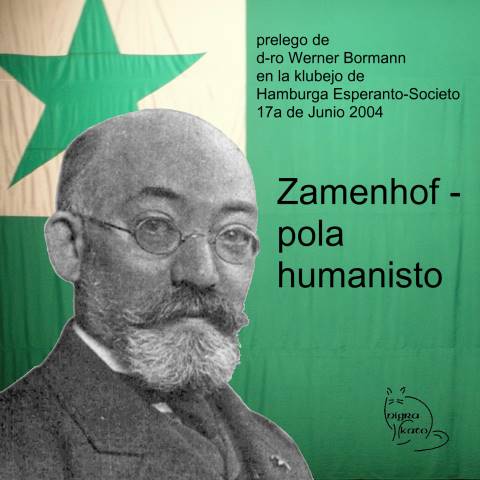
There’s a very common situation worldwide, the fact that people want to learn English. I’m very curious about this issue, that’s why I always ask them which are the reasons for learning such a language. What most people answer is that this language would be pretty useful for work, study abroad or simply because it’s one of the easiest languages to learn. Obviously, the last argument is not very well thought, because is not as easy as many people say or argue. In my case, as a Spanish speaker, I can certify that English is not easy, due to the difference between vocabulary and syntax that both languages possess. It’s true that 60% of the today’s English vocabulary is built up from originally Latin words; however, what about the other 40%? Isn’t that 40% useful? Of course it is, and that’s what most “normal” people use during daily life. In my country probably there are more English language institutes than ruins from pre-Hispanic times. I have listened to many people saying that this show to foreigners that culture is arriving in our country. Nevertheless, I think it’s the opposite. These institutes are only taking advantage of people’s pockets. The fact is that most people are not talented for foreign language learning, but…let’s be honest, sometimes, as I say, ignorant people ignore their ignorance.
An international language should help people communicate all around the world without any problem. I’m sure many important companies’ managers use this language when they are asked to go on a trip for business. They can speak English in China, Japan, Germany, Nepal or Ecuador with business men, but, what about common people? English is the business language without any doubt, but it’s not international, because the majority of people are not able to speak it. Only 10% of today’s worldwide population speak English with a “suitable” level, which means they can carry on a conversation without hesitating or at least transmitting the message they want. However, where’s the rest? The other 90% isn’t important? Of course it is, and that’s what I want to explain now. English is not the international language, because it hasn’t arrived to everyone. If we talk about such a universal language, first of all, we should think it twice before repeating such an affirmation unconsciously. By the way, statistics can confirm this. The most spoken language in this planet is not English, it’s Chinese Mandarin and the second one is my mother tongue, Spanish.
Since I was very young, I was interested in foreign language learning. Many people thought I was quite crazy or that maybe I was losing my time learning languages that wouldn’t be useful for my future. Of course, that didn’t matter to me, because I loved what I was doing and I wanted to show them my achievements. Learning foreign languages helped me understand other cultures and ways of thinking. Even some manners change from one language to another and realising this really amazes me. When one learns a foreign language, one faces a different culture, a way of structuring sentences and, as I said some lines above, a new way of thinking. Nonetheless, a non-native speaker will never think like a native speaker. I could explain this fact through the analysis of the difference in metonymy, but this is a very linguistic topic that I do not want to explain in this little essay. In a nutshell, we, people who have learnt English, would never talk or think like a real Anglo-Saxon, because our psycho-linguistic structures are not ordered for this language, but only for our native one.

What we need is a neutral language, a language that doesn’t belong to any natural linguistic family, because we would never be able to use it as a native speaker and express all our feelings and thoughts. Four years ago, I was very curious about an international language that could help humanity solve this terrible problem. Once, surfing on the net, I found a site called Lernu.net which taught a language named Esperanto. I had never heard of it, just the name was quite familiar. Maybe I had heard of it watching television or who knows…But it seemed to be very interesting. I started learning this and about a so called Universal Esperanto Association that had its quarters in Rotterdam, Netherlands. It sounded pretty serious, and, after two weeks, I had already a suitable level to communicate with other people that could use the so called “international language” as well. Within two or three weeks more I found a lot of friends in Eastern and Central Europe that took part in the Esperantist movement. I thought that was finally what I was looking for.
Esperanto is a manmade language, which was planned in the last decades of the 19th century. The creator of this language was a Polish oculist named Ludwik Lejzer Zamenhof. He was born in the city of Białystok, a place where many languages like Polish, Yiddish, Russian and German were spoken. This situation was a linguistic chaos, because people couldn’t communicate properly, due to this language difference. Therefore, this man, who mastered more than seven languages, decided to create a language that could help them solve this problem. Many people laughed at him, arguing that what he was doing seemed to be nonsense or not useful, but he didn’t surrendered and finished this planned language in the year 1887. The first name of the language was lingvo internacia (international language). After the publishing of it, many intellectuals from all around the world visited Dr. Zamenhof to offer their support.
After twenty years, this language was very well-known in Europe and America. In spite of this fame, the two world wars that started after the diffusion of the language killed many Esperantists and the Esperanto population diminished. Nowadays, this situation has changed, and many people learn Esperanto using Internet, like me. Many free language courses are offered online and the only thing you need is patience and the desire to learn this amazing language. Today, more than four million people speak Esperanto. Esperanto is said to be the easiest language to learn, because of its simple syntactic structure and vocabulary. I have listened to many people saying that it might be difficult to learn Esperanto for a Chinese speaker, Turkish speaker or Malayan speaker, because of the quantity of words taken from romance languages. Even though, I can certify that even for them, it’s easy. Chinese people can write sentences in Esperanto using the word order they are used to without being misunderstood. Why? Esperanto is a language which works using word endings. All the words, including nouns, adjectives, adverbs and verbs have a specific ending. For example, nouns end in -o, adjectives in –a, adverbs in –e and verbs in infinitive in –i. So, you can place the words according to your language and anyone can understand you. Of course, Esperanto has some grammar rules, but there are few. There are only sixteen basic rules.
